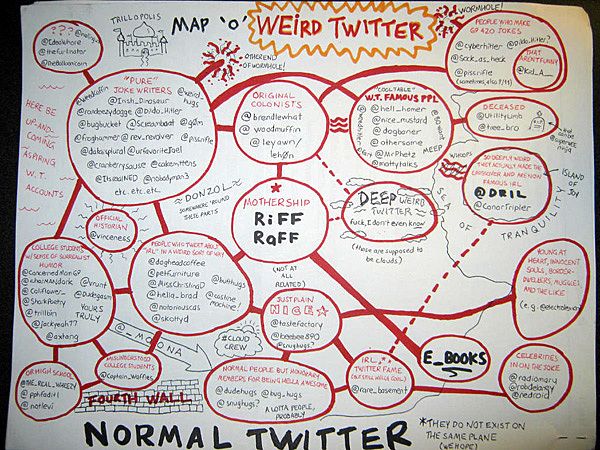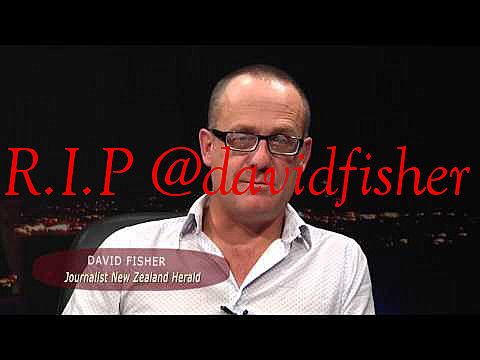Internet Histories | 7 April
This edition: David Fisher's great retirement letter from Twitter, and why the rest of you should rein it in.
Joe
I won’t be able to “@” NZ Herald senior reporter David Fisher to do it, but I’d like to say that he’s written a fine, concise and human piece on quitting Twitter that doesn’t slip into a sort of cloying, self-congratulatory praise for not being on there (“someone give me a fucking medal for rejecting technology in the year 2014”). Nor is it the petulance of someone who lost a few arguments. Actually, it’s as good an op-ed as you’d expect to see within the Herald’s pretty narrow parameters:
“The end of Twitter for me was realising it wasn't really serving any purpose related to what I want to contribute through the job I did. I know who I serve - readers/public - and the Twitter feed I created didn't really do that. Twitter has no resonance, unless it is driven relentlessly, and the churn of content demolishes anything you might try to constructively build. It doesn't go anywhere. Like those bars with no closing time, it is endless and goes on and on.
As time went on, it became clear I, as a journalist, was part of the dialogue rather than simply recording it. And from all of that, Twitter didn't create anything of value for the time I put into it that couldn't have been produced elsewhere.”
I appreciate that Fisher doesn’t double down on “Twitter is a time-waster”, instead choosing to clarify how it wasted his time. It is not inherently more special and destructive than the Internet overall. I chose not to go to my school social at intermediate because I was reading scripts for Simpsons episodes I hadn’t seen yet; I didn’t go for a run this evening because I got sucked down a tawdry K-hole of direct-to-video 80s film trailers on YouTube and camped out in that dark vibe. You will find a way to misuse your time. You can use the Internet to make amazing endeavors with friends as well.
But his work is all about current affairs, or “news”, and he’s right that if you dare stop for reflection while you're in that field, Twitter becomes a source of existential dread. If you want a story where there’s constantly the promise of a new development – a new talking point, a new angle – it’s a platonic ideal like nothing before, because there’s just an unprecedented volume of people who think they have something to offer. There’s also conflict, and conflict is good.
But what about when you realise that Twitter’s big story has flickered out and burned up in the space of a workday, and that worse, you’ve been a player and not an observer? I think most journos (hopefully, most writers) like to feel like they’re occasionally documenting something of record and consequence, that they’re history’s primary source. Twitter is an awful refutation of the idea that what you do matters, a place where ‘news’ is only a thing that happens to pass the time and battle solitude. Admittedly some journalists who use it to augment a unrelated press release with bad Dom Harvey tweets are aggravating this, but I’d wager that they’re the ones who never wake up to a crushing self-realisation about it either.
The mini-outrages are one thing, the interactions between reporter and subject are another. I think Fisher is a very good journalist (ie: he has been a thorn in everyone's side) but I always felt weird when I'd hop on Twitter and see him and a bunch of other journalists cheerfully tweeting trivia back and forth with Members of Parliament and Ministers about music preferences and gardens. Bully for our politicians for using Twitter intelligently enough to humanise themselves, but I question whether the press should be there to indulge and further that. It's possible that Fisher's use was partly strategic: you humour these people on the Internet, you work very hard in your 'on-time' to reveal what they're actually doing. But I don't know if that goes for everyone working in these roles - to an outsider, it looks like cosiness.
My big wish is that my friends who are young reporters and entering these institutions and sure to rise once everyone at the top finally moves on or dies is that they would stop engaging with politicians on Twitter, because they're perpetuating a PR facet and not actually offering the insight or accountability it's their job to provide. Follow them, but please don't get into this banter where we see them as these light-hearted media personalities. Leave it to the bloggers and the party shills who hate them or revere them. Treat it for what it is.
Good point about the ego-stroking aspect in there, as well. Twitter is high school, and I wonder how many of the people who have really got into using it as their platform, who have presented and constructed this augmented and unilaterally genial or unilaterally indignant self, would cop to either admitting they loved school or worse, wish they had been able to love school. I’m still looking for the social media equivalent of smoking and eating frozen Crofter’s dessert in the skate park behind Lynfield Countdown when I’m meant to be in a ‘free study period’. Maybe this will be Facebook by 2016. There's still a healthy community of people on Twitter who are handing in their B- assignments, though, and I stand with them.


